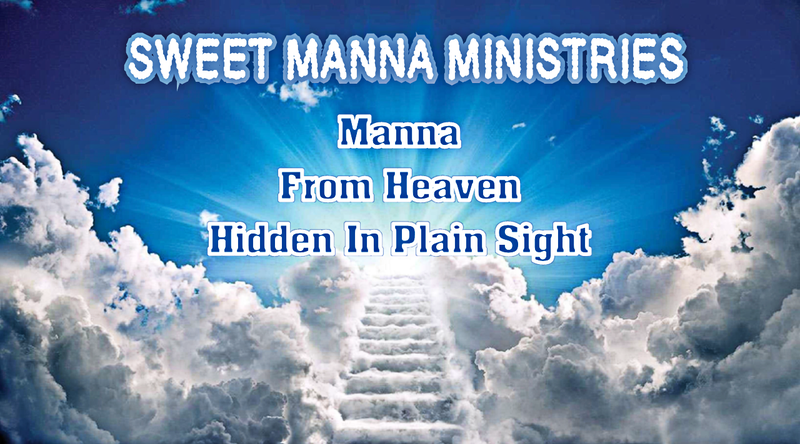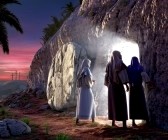The Teaching Ministry of
Rev. Marjorie Kummrow
Bible Studies
This ministry has made a choice to be "Biblically correct" as opposed to "politically correct" therefore we have forfeited the non-profit status available to us. Please note that all donations to this ministry are not tax deductible. Thank you for your support.
The Spring Feasts
Introduction
Part 1
Introduction to the Spring Feasts of the Lord - Part 1
The Hebrew word for feast is Moed which means a stated or appointed time. The precise date for each feast was given to Moses to give to the Hebrew people. They were instructed to meet with God on these appointed feast days once they entered the land which the Lord God was going to hand over to them, that is, Canaan. The Lord went on to say that these seasons or more precisely, these appointed days were to be a “holy convocation”. This holy convocation can be better understood as a dress rehearsal. 1 For each dress rehearsal or feast day the Lord gave a specific and precise day on the biblical calendar to meet with Him, and instructions on exactly what was to take place at that time. These dress rehearsals were intended to point to the coming of the Messiah. These festivals were joyous occasions with much celebration. The Spring feasts were a dress rehearsal that pictured Yeshua’s (Jesus’) first coming and the Fall feasts are a dress rehearsal that picture His second coming. (please note that Yeshua is Jesus’ Hebrew name and I will be using it interchangeably with Jesus)
The dates that the Lord gave us for the Spring feasts or festivals are, the 14th day of the 1st month, which is Pesach or Passover, beginning on the fifteenth day of the 1st month and lasting seven days is The Feast of Unleavened Bread, the day after the Sabbath is The Festival of First Fruits and then Pentecost is to follow after exactly 50 days. These are the days that the Lord sent out an invitation for his people to meet with him in the spring of the year. Nisan is the 1st month on the biblical calendar and the 4th month on the civil calendar.
He fulfilled every spring feast on the exact day that the Lord had instructed for the rehearsals to take place annually. Therefore we can hope that likewise he will do the same on His second coming during the fall feast days. We cannot know the year, but scripture does tell us that we can know the season, that is, the appointed time.
The word says that these spring and fall feasts or appointments with God are to be a statute forever in all your dwellings throughout your generations. 2 This then brings me back to how I began this article. How sad it is that we in the Church, who have been grafted into the Olive tree, for the most part, have lost sight of the importance that God places on His feast days and we are not familiar with the biblical calendar and the significance of these dates either. His invitation to meet with Him on these appointed dates is still extended to each one of us. Let your RSVP tell Him that you will be there! In the study that follows; we will be looking at each appointed time during the spring and how our Lord Yeshua fulfilled each feast so precisely. It is simply awesome how every detail points to and is fulfilled in Yeshua (Jesus).
Our study about the Spring Feasts of the Lord brings with it the importance of these appointments with God because we will see how Yeshua fulfilled each and every feast on the precise date. We will also be looking at each symbolic act required and how it was a picture that was painted for the Jews to prepare them for the coming of the Messiah. For us Christians there is such hope embedded in the precision of the fulfillment of the spring feasts, that we can be looking with assurance that when our Messiah comes the second time that He will fulfill the fall feasts with the same awesome precision. The celebration of these feasts as I said earlier, were to be dress rehearsals for the real thing, i.e. the first and second coming of the Messiah.
Leaven is representative of our sin as seen when Paul was chastising the Corinthian church when he said “Do you not know that a little leaven leavens the whole lump?”4 Because preparation for the Feast of Unleavened bread began many days before Passover, we will be covering in detail this feast first, in our study of the Spring Feasts that are to follow.
1 Mark Blitz, Passover to Pentecost
2 Lev 23:21
3 New King James, Ex. 12:15-20
4 Ibid, 1 Cor. 5:1-8
To continue with Part 2 of this series, click on "Spring House Cleaning"
If you have any questions, please feel free to email us.
Be Blessed,
Rev. Marjorie
marjorie@sweetmanna.org
Contact us to be put on our email list at mailinglist@sweetmanna.org or make a prayer request at prayerwarrior@sweetmanna.org
As we enter into one of the four seasons on our Gregorian calendar, and we enter into the season that we call spring, I am reminded about how far the Church has strayed from the Biblical calendar and what the biblical significance of season is. The seasons of the Lord are the Biblical Feast days that the Lord spoke to Moses about in Leviticus, chapter 23. These feasts take place in the spring and the fall of each year.
Yeshua (Jesus) fulfilled the spring festivals by becoming our sacrificial lamb on Pesach (Passover), the believer’s bread on The Feast of Unleavened Bread, the first fruits among many, on The Festival of First Fruits, (Resurrection day). This festival was the day of his resurrection, three days after Passover began. Then on the Feast of Weeks, or Shavuot, better known to us as Pentecost. He poured out his Holy Spirit, upon the believers in the upper room.
Passover is the first of the spring feasts. It begins on the 14th of Nisan on the biblical calendar. On the second day of the Passover festival, or the 15th of Nisan, begins the “Feast of Unleavened bread”. For seven days no leaven was to be found in the homes of the people of God. It was strictly forbidden to eat any leaven during this time and anyone that did was to be cut off from the congregation.3



